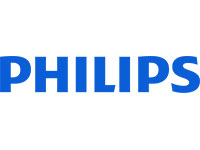Philips Recalls Millions of Sleep Devices and Ventilators
The company outlined instructions for patients and HME providers for recall related to the breakdown of noise abatement foam used in devices that could cause health risks and could possibly become toxic or carcinogenic.
- By David Kopf
- Jun 14, 2021
 Philips is recalling millions of PAP therapy devices and ventilators due to foam used in the devices that could degrade, cause inflammations or respiratory issues, and possibly become toxic or carcinogenic.
Philips is recalling millions of PAP therapy devices and ventilators due to foam used in the devices that could degrade, cause inflammations or respiratory issues, and possibly become toxic or carcinogenic.
Today, Philips issued a recall notification for the United States for specific Philips bi-level positive airway pressure (Bi-PAP), continuous positive airway pressure (CPAP), and mechanical ventilator devices to address potential health risks related to the polyester-based polyurethane (PE-PUR) sound abatement foam used in these devices. (For international markets, the company issued a field safety notice.)
Philips issued the recall per regulatory requirements after discovering problems with the foam as part of its Quality Management System processes. The company stated it is notifying regulatory agencies in the regions and countries where affected products are available. Regulatory agencies have not yet classified the recall notification, according to Philips.
The Problem: Foam Breakdown
Philips has produced millions of Bi-PAP, CPAP and mechanical ventilator devices using the PE-PUR foam. The majority of the affected devices within the advised five-year service life are in the first-generation DreamStation product family.
Philips reported that, based on testing, the PE-PUR foam might degrade into particles that could be ingested or inhaled by the user, and the foam may off-gas certain chemicals.
The use of unapproved cleaning methods, such as ozone, as well as high heat and high humidity environments could contribute to the foam’s degradation, according to the company.
The Health Risk
Philips reported that it received reports of possible patient impact due to foam degradation. The potential risks of being exposed to the particulate include headache, irritation, inflammation, respiratory issues, and possible toxic and carcinogenic effects.
The potential risks of chemical exposure due to off-gassing from the foam include headache, irritation, hypersensitivity, nausea or vomiting, and possible toxic and carcinogenic effects. Philips reported it has not received reports regarding patient impact related to chemical emissions.
Philips stated that it continues to monitor reports of potential safety issues, as required by medical device regulations and laws in the markets in which it operates. To date, there have been no reports of death as a result of these issues, according to Philips.
What Patients Need to Know
For patients using BiLevel PAP and CPAP devices, Philips advises they should discontinue using their devices and work with their physicians or HME provider to determine the most appropriate options for continued treatment.
For patients using life-sustaining mechanical ventilator devices, Philips advises that they should not stop or alter their prescribed therapy until they have talked to their physician.
If the physician determines that the patient must continue using this device (such as when the device is life-sustaining but alternate ventilator options for therapy might not exist or be limited), Philips advised using an inline bacterial filter. The device’s Instructions for Use should provide guidance on installation.
Philips also recommended that customers and patients stop using ozone-related cleaning products and adhere to their device instructions for use for approved cleaning methods.
Philips is creating an online registration process to help patients, users, or caregivers look up their device serial number and begin a claim if the unit is affected. For now, they can call (877) 907-7508.
What HME Providers Need to Know
First off, HME providers should be clear on what patients need to do (see “What Patients Need to Know” above).
The recall itself will be a repair/replacement program. Philips stated it will either replace affected devices with a new or refurbished unit that incorporates the new sound abatement material that is not affected by this issue or will repair them to replace the sound abatement foam. The new material will also replace the current sound abatement foam in future products.
Philips has created a registration site for HME providers to participate in the recall. However, in order to register for the site, they must have log-in credentials for the registration site, which they will receive in a letter from Philips by June 23. Then they can register
The registration page lists the various device models impacted by the recall. They are:
CPAP and BiLevel PAP Devices
(All affected devices manufactured before April 26, 2021; all device serial numbers.)
|
Continuous Ventilator, Minimum Ventilatory Support, Facility Use
|
E30 (Emergency Use Authorization)
|
|
Continuous Ventilator, Non-life Supporting
|
DreamStation ASV
DreamStation ST, AVAPS
SystemOne ASV4
C-Series ASV
C-Series S/T and AVAPS
OmniLab Advanced+
|
|
Non-continuous Ventilator
|
SystemOne (Q-Series)
DreamStation
DreamStation Go
Dorma 400
Dorma 500
REMstar SE Auto
|
Mechanical Ventilators
(All affected devices manufactured before April 26, 2021; all device serial numbers.)
|
Continuous Ventilator
|
Trilogy 100
Trilogy 200
Garbin Plus, Aeris, LifeVent
|
|
Continuous Ventilator, Minimum Ventilatory Support, Facility Use
|
A-Series BiPAP Hybrid A30
(not marketed in the United States)
A-Series BiPAP V30 Auto
|
|
Continuous Ventilator, Non-life Supporting A
|
A-Series BiPAP A40
(not marketed in the United States)
A-Series BiPAP A30
(not marketed in the United States)
|
At this time, Philips reported all the affected devices are on manufacturing and ship hold.
HME providers can also call (877) 907-7508 for assistance, and Philips has provided some additional online resources for them: